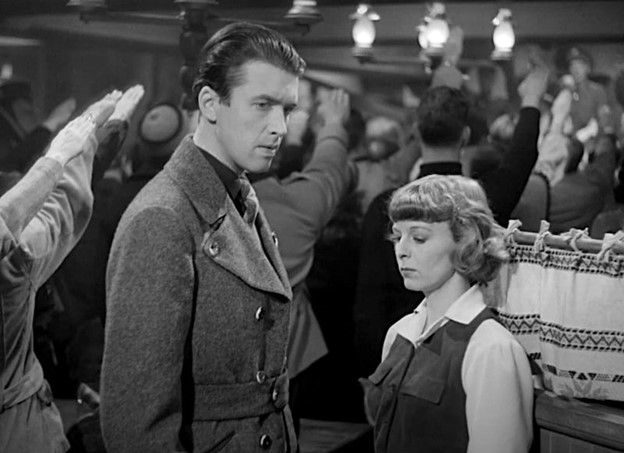The Mortal Storm (1940)
Frank Borzage's "The Mortal Storm"
In 1940, World War II had already commenced. America had not yet entered into the conflict. Despite America's lack of commitment to one side, a small group of filmmakers produced anti-films in Hollywood. One such film, Frank Borzage's "The Mortal Storm" was so critical of the Nazi movement, Germany banned all subsequent MGM films after its release.
The film takes place in a small mountain village in Germany on the border with Austria. A tight-knit family is celebrating the 60th birthday of their distinguished patriarch, Professor Viktor Roth. Suddenly, the news spreads that Adolf Hitler has become the Chancellor of Germany. This news begins to tear the family apart, as the two older brothers pledge their support to the new regime. The other members of the family, however, are less enthusiastic, as Professor Roth is a 'non-Aryan.' Soon, hatred and violence begin to spread. The youngest daughter breaks off with her fiance, who also has joined the cause. Professor Roth ends up getting arrested and thrown into a concentration camp, where he dies. The family's mother, Amelie, escapes the country. Before escaping with her, the family's youngest daughter, Freya, is not permitted to leave the country. The family friend, Martin, helps Freya escape through the mountains. Before reaching the border, a border patrol shoots and kills Freya, as she dies in Martin's arms.
Many of Frank Borzage's films feature difficult times, with a central love story braving these times. With "The Mortal Storm," we see an entire family unable to stay together because of the hatred and nationalist stance of some of its members. Despite this, it seems as though the love of those remaining remains intact. One of these relationships is between Freya and her love interest, Martin. Through all the hardships and aggression by the Nazi members, their love for each other remains intact. However, because Freya ends up dying in the end, "The Mortal Storm," like Borzage's 1932 film, "A Farewell to Arms," ends with the female love interest dying in her lover's arms. Most of Borzage's films end with a bittersweet ending, but "The Mortal Storm" ends with one of the bleakest endings of his career.
After the US entered the global conflict in December of 1941, there was an onslaught of anti-Nazi films. However, before this date, very few filmmakers actually made films that directly criticized the Nazi regime. One of the more popular examples being Charlie Chaplin's "The Great Dictator." The regime was so infuriated with the film's stance that it banned all subsequent MGM films to follow.




Comments
Post a Comment